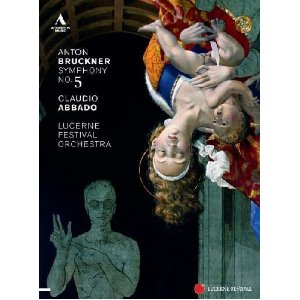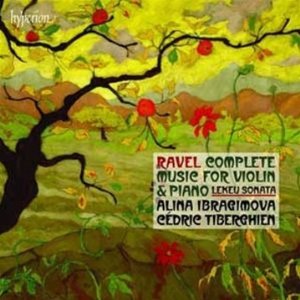Classical CDs Weekly: Bruckner, Mahler, Pärt
Orchestral heavyweights and Estonian minimalism
 Bruckner: Symphony no 5 Lucerne Festival Orchestra/Claudio Abbado (Accentus DVD)
Bruckner: Symphony no 5 Lucerne Festival Orchestra/Claudio Abbado (Accentus DVD)
 Bruckner: Symphony no 5 Lucerne Festival Orchestra/Claudio Abbado (Accentus DVD)
Bruckner: Symphony no 5 Lucerne Festival Orchestra/Claudio Abbado (Accentus DVD)
Noticed that nip in the air recently? The reason now is obvious: conductor Osmo Vänskä, the brisk wind from Minnesota, has blown into town, challenging London’s orchestral musicians to give beyond their best and uncover new layers in repertory works they previously assumed they knew backwards. Last year, the London Philharmonic sweated blood with the Minnesota Orchestra’s rigorous conductor over Sibelius’s symphonies; last night, in a one-off, orchestra and conductor faced up to Bruckner and his Fourth Symphony, the Romantic.
Pundits have always yoked architecture and Bruckner together, touting void and mass at the expense of the dynamic experience music ought to be. Abbado and his Lucerne Festival Orchestra favoured sinuous instability in the Fifth Symphony earlier this week, making the very foundations gyre and gimble. Relatively solid ground last night was due to a more sober conductor and Bruckner symphony: a mixed blessing. The grand design, in fact, came from Leif Ove Andsnes in Rachmaninov’s Third Piano Concerto, making overall sense of a work which has always seemed swooningly resistant to it.
We're living through a golden age of Bruckner conducting. A revolutionary age. Young sparks like Yannick Nézet-Séguin and Ilan Volkov are doing extraordinary things with the Austrian's music, experimenting with speeds and phrasing, reshaping him in a more extraterrestrial, more lithe and modern mould. All of which means that trying to get yourself noticed conducting Bruckner in the 2010s is a bit like trying to get yourself noticed as a footballer in 1970s Brazil. Good luck.
 Ravel: Complete Music for Violin and Piano Alina Ibragimova, Cédric Tiberghien (Hyperion)
Ravel: Complete Music for Violin and Piano Alina Ibragimova, Cédric Tiberghien (Hyperion)
David Fray certainly has the locks to be a piano virtuoso (eat your heart out, Franzi). And he has the looks, the troubled brow, the pallor and a suitably eccentric manner (the Glenn Gould hunch and hum came out for all the runs). But does he have the hands?
Landscape painting may be dominated by the Dutch. But in music it is the Austrians who know best how to evoke the majesty of the great outdoors. In the first of last night's two Proms, one of the most awesome of Anton Bruckner's snow-capped symphonies, number five in B flat major, accompanied a new high climb through the Tyrol from fellow Austrian Thomas Larcher for two great musical off-pisters: violinist Viktoria Mullova and cellist Matthew Barley.
Honour your senior master conductors: there aren't so many of them left now. Abbado and Haitink spring most readily to mind, but orchestral musicians may also nominate Neeme Järvi, who celebrated his 74th birthday last week. A passionate patriot and the man his country voted "Estonian of the Century" in 2000, he proudly sports the colours of the national flag in concert attire by virtue of a natty added blue handkerchief.
It was Groundhog Day. Murray Perahia, due to play the Schumann Piano Concerto last night under Bernard Haitink, was indisposed and at the last minute Maria João Pires rushed in with Mozart 27. Just the same happened in 2006, strangely enough, with exactly the same three artists and orchestra. As you ponder that for a coincidence, what this shows is the powerful bonds that exist between musicians, between Haitink and these two pianists, whose virtues have much in common: impeccable lucidity and light-filled emotion.